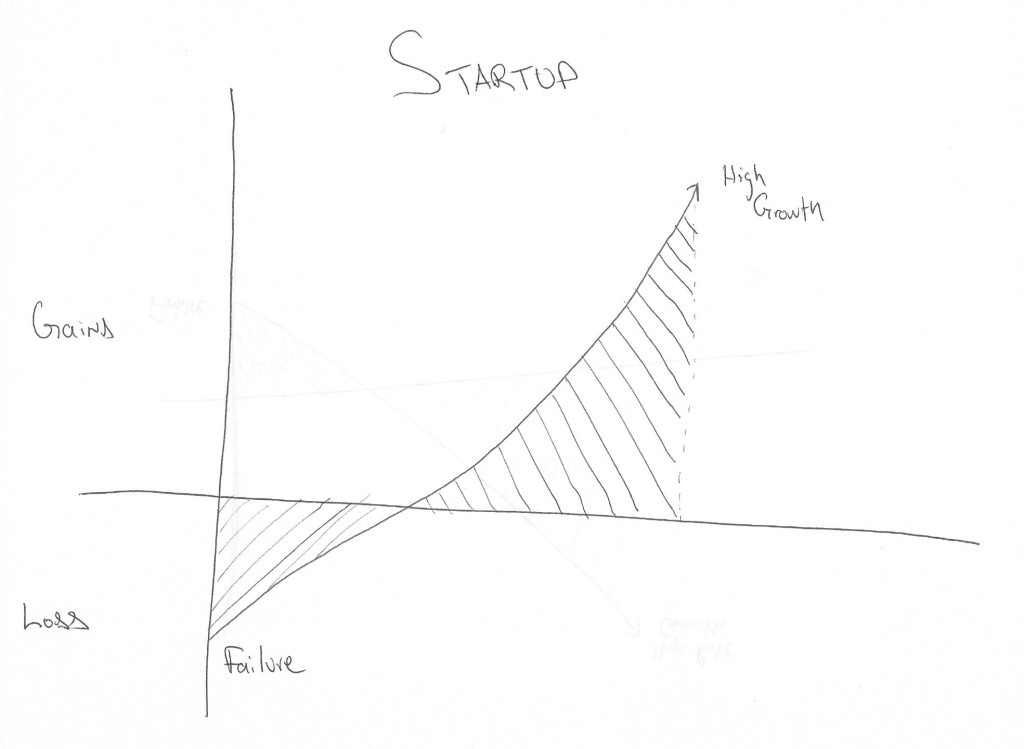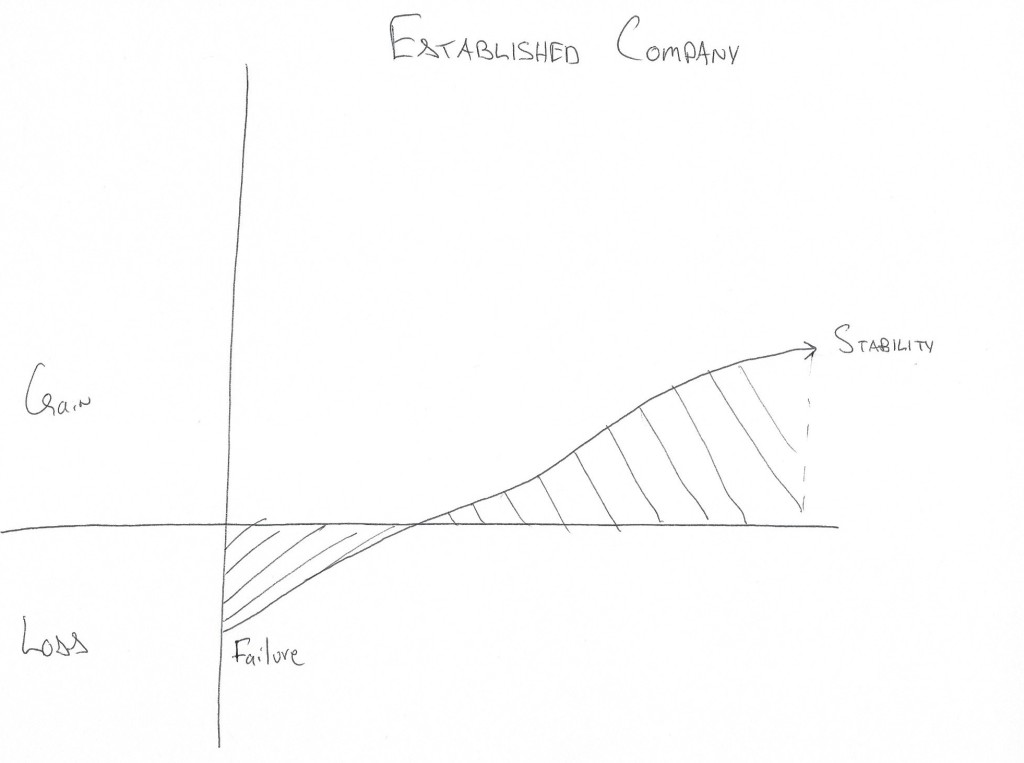I’ve been asked about this topic or it’s been brought up in conversation quite a bit recently.
If you’re a young person, should you take a job at an established company or at an early-stage startup?
“Established company” can really mean anything that isn’t terribly unknown like a startup — it can be a bank like PNC or an investment group like Goldman Sachs, it can be an established tech company like Google or Apple, or it can be an established, profitable SMB in your area. Pending a Great Recession, these companies probably aren’t going anywhere.
A startup is a company that still exists in the realm of the unknown. It probably still doesn’t have too many people knocking down its doors to get jobs, or it isn’t spending tens of thousands of dollars on recruitment on one college campus. It may or may not have venture capital funding. What’s important is that it has the opportunity to grow quickly.
Ultimately, the choice between a job at an established company or at a startup comes down to personality types. Some people just don’t like the idea of working at a company that might not turn a profit and doesn’t have billions coming in to keep it afloat. Some people don’t like the idea of feeling like they’re a cog in a massive machine. But this sounds like a cop-out if you tell somebody, “meh, it’s totally up to you.”
I find thinking about downside-versus-upside to be a more useful way of addressing this problem.
Every set of decisions has a potential downside and a potential upside. Wise risk-takers are people who make decisions that minimize the downside while maximizing the potential upside. Nobody takes risks for stability (unless their alternate options are much worse) and nobody (intelligent) who likes risk indulges in it for the downside.
Startup entrepreneurs are somewhat risk-averse in this regard. Culture paints them as the types of people who jump off a cliff and figure out how to build a parachute on the way down (to paraphrase Richard Branson), but this is too crass a generalization. Startup entrepreneurs and their founding teams are risk-averse in the sense that they take smart risks and avoid the dumb ones. Smart risks are those with the best downside-to-upside ratio. There may be a huge downside but there’s a bigger upside. There may be a big upside but there’s a smaller downside.
If you are attracted to that way of thinking, then you should probably go work at a startup.
Startups are, like anything that hasn’t been done before, particularly risky ventures. It’s possible that you could spend months of your life building a product that doesn’t garner any customers, or you go for a year and fail to raise a seed round that you need to keep operating and have to close the doors. Any number of factors could increase the likelihood of failure (also why good startup founders work as hard as possible to minimize these factors). But the upside, should you succeed, of good startups is huge.
The downside is, in the grand scheme of things, not that massive, either. If a startup fails or doesn’t happen to experience high growth (making it into more of a “small business,” than a startup, see Paul Graham here), then, worst-case-scenario, you’re out of a job and have to take up a part-time gig for a while until you get a job somewhere else. The bottom in the US just isn’t that low, as my friend Levi Morehouse likes to point out when talking to prospective entrepreneurs or startup-employees. You lose some time, some potential pay (if taking a lower-paying startup job in lieu of a better-paying job at an established company), and may have to get some credit card debt. Even if you fail, you still get the experience that comes with doing something differently than most of your peers. When you’re young, you don’t have to be as worried about paying a mortgage, car loan, putting your kids through school, and all the other factors (like health) that come with age. You have the lowest downside of your life at 18 or 22.
You take this risk in exchange for the opportunity to hit it big if you succeed. You minimize the downside relative to the maximized upside. This is what makes this different from just making a list of pros and cons. You’re thinking relatively here, not probabilistically.
This is also why I don’t find most complaints about the work experience at startups that compelling. You voluntarily sign up to do harder work at lower pay for the opportunity to have a slice of the pie that could be very valuable someday (and this is ignoring any kind of intrinsic motivations like enjoying work). That’s a pretty good deal. A relatively big slice of $1B is more valuable than a really, really, really tiny slice of a couple billion (or a profit-sharing scheme taken up by a big company).
Meanwhile, big, established companies come with their own calculus as well.
At a big, established company, if you are good at your job and meet all the right requirements, you can slowly work your way up towards an upper-level position that brings with it stability, good pay, and good benefits. There’s a potential for high payoff, but not high payoff. Most independently wealthy people (who didn’t make their wealth through politics or cronyism) accrued their wealth through equity in a company they helped grow. Most upper-middle-class people were employees at an already-existing company.
The downside is smaller but not by much. If the company goes bust, as a young person, you’re one of the first to go (seniority matters more than pure talent in most HR departments). You may have a better savings account set aside (assuming you are savvy with the higher pay you’d get than your friend at the startup) to help offset costs, and you have the name recognition of the big company when you go apply for a job elsewhere.
Downside is low, but payoff is limited.
Some people value the payoff of stability in a way that can’t be measured on these charts. If that’s the case, then the psychic payoff of working at a large company likely outweighs the psychic downside of instability working at a startup.
People like to think in terms of “likelihood of X” or “building my resume” or “ease of work,” but these subjective factors (you can’t predict the next recession, it’s hard to predict the outcome of startups, and “ease of work” changes with each individual) aren’t useful when thinking of giving advice.
Think about the downside. Think about the upside. Compare the two. Make your decision.
(I take a lot of the inspiration for this way of thinking from Nassim Nicholas Taleb’s book Antifragile.)

